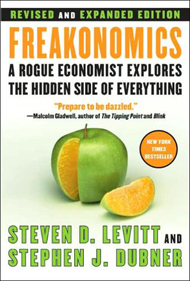Los libros sólo pueden revelarnos a nosotros mismos, y mientras nos hagan este servicio, los dejamos de lado.
Reseñas de libros
Joy es una ávida lectora de no-ficción y frecuenta la biblioteca local de su ciudad varias veces por semana. La mayor parte de lo que lee y sobre lo que comenta está relacionado con economía internacional y desarrollo, negocios y finanzas.
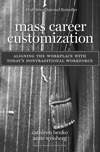
Título: Mass Career Customization
Autores: Cathleen Benko y Anne Weisberg
Reseña escrita por Joy Hopkins
Cathleen Benko y Anne Weisberg, de la internacional Deloitte, se asocian en su libro, Mass Career Customization (Personalización masiva de carreras), para aplicar un concepto común en la industria de productos de consumo a un nuevo campo ―los recursos humanos. En siete capítulos concisos y bien argumentados, las autoras presentan un... Seguir leyendo
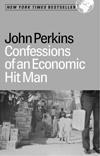
Título: Confessions of an Economic Hit Man
Autor: John Perkins
Reseña escrita por Joy Hopkins
John Perkins hace un audaz intento de limpiar su pesada conciencia en confesión tras confesión en su libro Confessions of an Economic Hit Man (Confesiones de un sicario económico). Al hacerlo, el autor nos pone al tanto de una secuencia de eventos dignos de una retorcida trama de Alfred Hitchcock.
Perkins sienta las bases poniéndose personal. Seguir leyendo
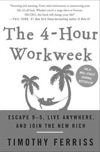
Título: The 4-hour Workweek
Autor: Timothy Ferriss
Reseña escrita por Joy Hopkins
Recibí el bestseller de Timothy Ferris The 4-hour Workweek (La semana laboral de 4 horas) para Navidad y, cautelosamente optimista, procedí a leer lo que esperaba no se convirtiera en otra interpretación de un esquema despreciable de cómo hacerse rico rápidamente. A pesar de ponerse pedante por momentos para mi gusto, encontré que el autor cumplió con éxito... Seguir leyendo
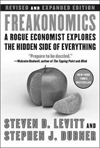
Título: Freakonomics
Autores: Steven Levitt y Stephen Dubner
Reseña escrita por Joy Hopkins
Freakonomics (Fenomeconomía) obtuvo mucha atención cuando se publicó en 2005. Steven Levitt y el poco mencionado co-autor, Stephen Dubner, sin duda tuvieron éxito en lograr hacer entender sus puntos de vista mediante un estilo narrativo relajado. De hecho, como resultado de ello, aproximadamente la mitad del libro es increíblemente agradable e interesante. Seguir leyendo
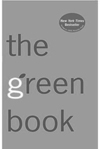
Título: The Green Book
Autores: Elizabeth Rogers y Thomas M. Kostigen
Reseña escrita por Joy Hopkins
Impreso en papel 100% reciclado, The Green Book (El libro verde) se lee más como una enciclopedia anecdótica para niños (exceptuando las fotos) que como un libro hecho y derecho. Los 12 capítulos, cada uno referido a un espacio común o a una actividad, como el hogar, el trabajo, la escuela y los viajes, presentan sistemáticamente formas simples... Seguir leyendo





